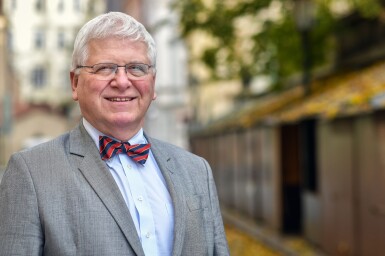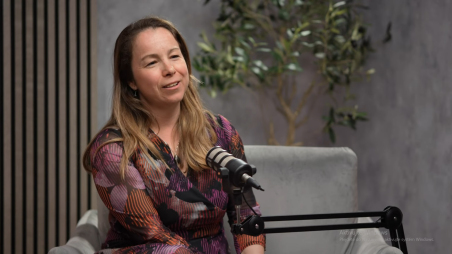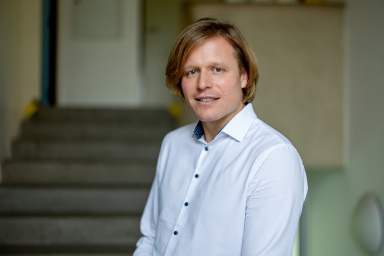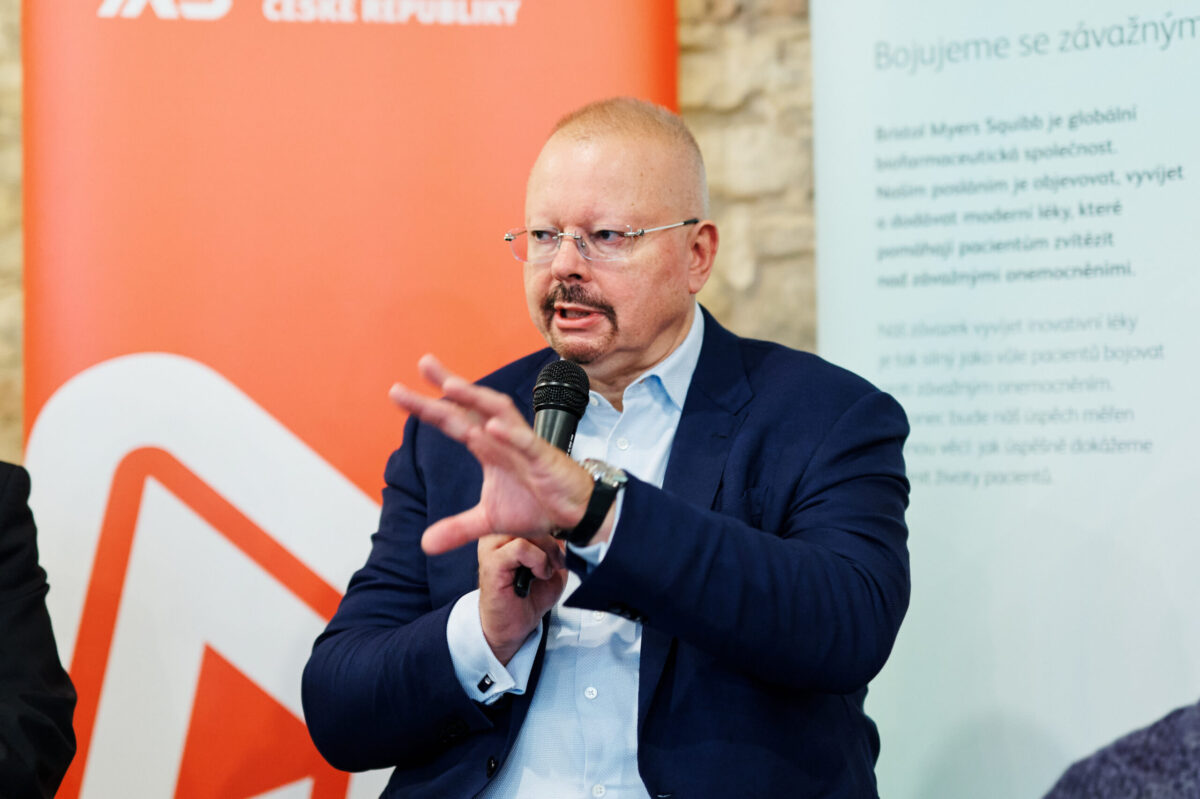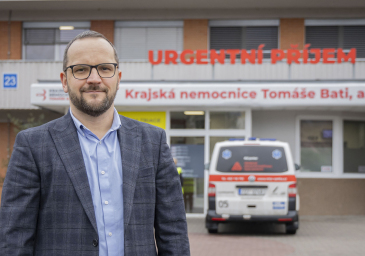Cigarette smoking leads to serious cardiovascular and cancer diseases, which are increasing at a rate that may one day overwhelm health services. Lung cancer dominates the list, and its treatment is now much more effective, but at an astronomical cost, warns British oncologist Peter Harper. He therefore recommends taking every opportunity to mitigate the impact of this threat on both individual and public health. Smokers who are unable to give up conventional cigarettes should not be penalised by doctors, but offered alternatives that will reduce their health risks. Dr Peter Harper is the founder of the UK’s Leaders in Oncology Care Centre of Excellence and was for many years Chief of Oncology at Guy’s and St Thomas‘ Hospital in London. In the Czech Republic, he has recently lectured at the Czech Annual Cancer Research Meeting in Olomouc, as well as at the Prague Cancer Days.
Oncology has changed substantially in recent years. Many diagnoses are now curable. It seems patients rely too much on doctors to be able to fix everything. How do you talk to your patients, smokers, in this context?
We should avoid blaming smokers for their cancer. Seven to eight out of every ten patients who come to a lung cancer clinic are smokers. In the past, we have told them that even though they knew what could happen, they continued to smoke and that’s why they are now in trouble. But I have come to the conclusion that we must not in any way blame patients for their illness. If you’re British and you go skiing for two weeks a year, there’s a pretty high risk of breaking your leg. But we don’t blame you. It was an accident. We have to think about patients who are addicted to smoking, meaning addicted to nicotine. Instead of blaming them, let’s try to change their behaviour so that they don’t come back to the clinic with cancer. We need to try to find out why they smoke, what they do and how we can change it. In particular, we need to take into account at-risk groups such as the mentally ill, or shall we say less formally educated than some of us. We know that they are the ones who make up the largest group of patients who continue to smoke. So not finding fault, but understanding and trying to change their lives so that there is less smoke and therefore less damage to their health.
Of all the patients I see, the cancer smoker has the lowest expectations because he feels guilty. They are the least demanding patients, they don’t have high expectations of treatment outcomes, in fact they feel guilty. They carry their own stigma. They know they shouldn’t have done it.
Many doctors, nonetheless, have a different approach. They tell smokers that they have to stop smoking. Why do so many doctors advocate a strict approach? Is it because harm reduction is also promoted by the tobacco industry?
Mohlo by vás zajímat
It all stems from historical reasons when the tobacco industry denied something that was undeniable. It has led to national public health authorities not looking at how the means or systems of less harmful nicotine delivery can be developed and evaluated, and how we can look at the very nicotine that makes people smoke. We don’t then ask the right questions such as: What can we do to help the person who is addicted to nicotine?
Does this mean that some doctors do not have enough information about harm reduction and do not know the whole concept and its real effect?
I would agree with that. And I would add two more things. I don’t think they are interested in understanding it. And the only way to get around that reluctance is to have government agencies do the research for them. I would argue that if such a scientific paper were done by UK or US experts or any independent expert, it would be published in The Lancet or in the New England Journal. It would be a wonderful scientific paper with a very high impact factor. All the cancer studies are paid for by the pharmaceutical industry and are then reviewed by the FDA and also by the EMA, but they are no less independent than those paid for by the tobacco industry. But they are perceived differently.
However, we do know that the FDA has independently assessed the available evidence as it does for drugs and, on that basis, has given permission for snus and heated tobacco to be labelled as modified risk tobacco products. I often hear that there is no evidence, but when evidence is presented, it is not subsequently accepted. When I say to our lung doctors: Look at the FDA review, they won’t do it, they won’t look. It’s bizarre. I mean, even if they don’t believe it, doesn’t mean they can’t look at it. It’s just prejudice. They’re not capable of doing it because that’s how they’re raised. And then that’s reflected in all the public surveys when questions are asked about whether nicotine causes cancer, whether vaping is as dangerous as a burning cigarette. All this creates confusion. There has even been a shift in the media. Cigarette smoking seems to be less harmful, because the newspapers no longer cover the subject and are instead full of stories about vaping or about food. There’s no hype around smoking conventional cigarettes, it’s gone. The world has kind of stood on its head. It is concerned about something that all of us who independently assess the evidence know is 95 percent less harmful than a burning cigarette, and an electronic cigarette is even 98 percent less harmful than a conventional cigarette. They want to talk about a two percent risk, but they ignore the risk, which is 100%.
However, there are arguments against what you have just said, that these conclusions are made on the basis of toxicological studies and there is not enough clinical evidence.
We do have clinical evidence, specifically from Sweden. They have been using snus, or the Swedish equivalent of modified and pasteurised snuff, for 50 years. Sweden has the lowest tobacco-related mortality rate in the world. It is half that of the rest of Europe and a quarter that of Hungary and other Eastern European countries. Life in these countries was quite hard and there was little pleasure. Smoking at least brought some satisfaction.
Is the Swedish experience transferable to other European countries? Given that they use smokeless products other than snus?
I have no doubt that if there is a significant reduction in smoking of combustible cigarettes, there will be an improvement in health, as scientific evidence confirms. This improvement is due to the reduction in the amount of carcinogens you inhale dropping by 90 per cent. The problem of passive smoking is also eliminated.
I think we are going to see the biggest improvement in public health that we have seen since the days when we were dealing with infectious diseases. We’ve cleaned up the water, we’ve cleaned up the energy sources. The biggest single improvement will now come with the decline in the use of conventional combustible cigarettes. Then we have other challenges, especially air pollution, which affects everyone who lives in the city. We also know that the health outcomes of a smoker who smokes in the city are very different from one who smokes in the countryside. So the evidence is there and we need to act on it in all the areas I have talked about.
In many prosperous countries, a quarter of the population still smokes. Moreover, we know that if we have a high proportion of smokers in the population, we will also have a high rate of smoking in children. Countries that have a young population, such as Egypt, where 18 million people out of a population of about 100 million smoke, will have millions of patients in the future. By the time young smokers are 40, they will have smoked for 20 years or more. In countries where the younger generation smokes in such large numbers, lung cancer is virtually invisible for the time being, but it is clear what is to come and the burden that awaits them.
The United Kingdom was in a similar situation when I was a student and then a young doctor, because of our smoking history in the Second World War. Soldiers were given free cigarettes because they gave them comfort, because they gave them satisfaction. They didn’t smoke in the army because they hated it there, but because it was social and part of the reward system, so then we deserved our problem…
Are governments going too far in their efforts to protect health by telling us what we should and should not do? For example, when they say that they have to protect us from nicotine, there was once a similar effort associated with caffeine and coffee, for example. However, these are substances that improve attention and concentration and cannot be regarded as a priori poisonous.
I absolutely agree. We are very fortunate in Britain to have Public Health England, which is run by independent government experts. They have researched the situation of people who cannot or will not quit smoking. They have asked what they can do for them, but they have also gathered evidence on whether alternative tobacco products are a gateway to smoking. The evidence they gathered is threefold. One is that you can make what is called a switch to quit, or that Public Health England encourages smokers to switch to less harmful alternatives to help them quit. That is a very strong message. The second thing is that we are looking closely at young people’s use of e-cigarettes. It is now illegal in the UK to sell e-cigarettes to anyone under the age of 18. However, e-cigarettes are making their way into the youth population, so this needs to be monitored carefully.
There is no evidence that heated tobacco products are being distributed in large numbers to young people in Britain. Some young people vape, but we are not concerned about that, it is about 7 to 8 per cent of young people and it is not shown to be a gateway to conventional cigarettes. We have other issues that we will have to address, such as marijuana. That’s a whole other story, but it shouldn’t drown out the message about the population situation. That smokes combustible cigarettes and therefore ends up with a host of serious diseases, vascular, coronary and cancerous, all of which are frightening and terrible for the whole country when you see how their numbers are increasing and that they can overwhelm the health services. Treatment for lung cancer is now much more effective, but the cost is astronomical. The shortest immunotherapy trial lasts two to three years. It’s not three or six cycles of chemotherapy. These are demanding applications, with high costs to the public health services and, of course, to the family.
As an oncologist, how do you view the financial motivation of patients to change their approach to health?
Cancer treatment is free in the UK. Our patients have very good access to the latest drugs. There is a delay, though, so that when a new lung cancer treatment comes along in the United States, it is likely to take two, sometimes three, years for patients in the UK to get it. That is because of a system that is supposed to dampen financial costs.
But we do work with some incentives, precisely by using the switch to quit principle, i.e. quitting smoking through switching to less risky alternatives. So for 12 weeks we pay for cigarette substitutes and subsidise psychotherapy. The concept is that smokers will switch to less harmful alternatives and then quit smoking completely. But, of course, realistically, we can expect that a large proportion of them will not quit but will continue to use the less harmful product. These products require a different nicotine uptake technique, which is why the patient is taking them. It is necessary to learn to inhale the vapour differently from the smoke of conventional cigarettes. In my personal experience, it is possible to steadily get habitual smokers to quit. I have had more success with alternative tobacco products than with patches or chewing gum. I have also found that I can convert. So if I can convert those 40 patients a day to an electronic cigarette or a heated tobacco product, I’m doing my job well. And I often use the example that having a cigarette is like trying to cross a highway. Or you can try to cross a village street, so use an alternative. Both have their risks. But the relative risks are very different.
Tomáš Cikrt
Dr. Peter Harper is the author of more than 400 articles and chapters in peer-reviewed publications. He is recognized worldwide for his work in researching new drugs and developing improved treatments for cancer. He has chaired or served on numerous international executive committees exploring new approaches to cancer treatment, editorial boards of peer-reviewed publications, and currently serves on eight advisory boards of pharmaceutical companies and is a member of sixteen professional bodies worldwide, including on the board of the American Society of Clinical Oncologists (ASCO). In 2002, he was awarded the prestigious Cino del Duca Medal in 2004 in recognition of his work in the development of new anticancer and vaccine therapies. He was made a Knight of the Legion of Honor for his role in advising the French government on strategic cancer care.


